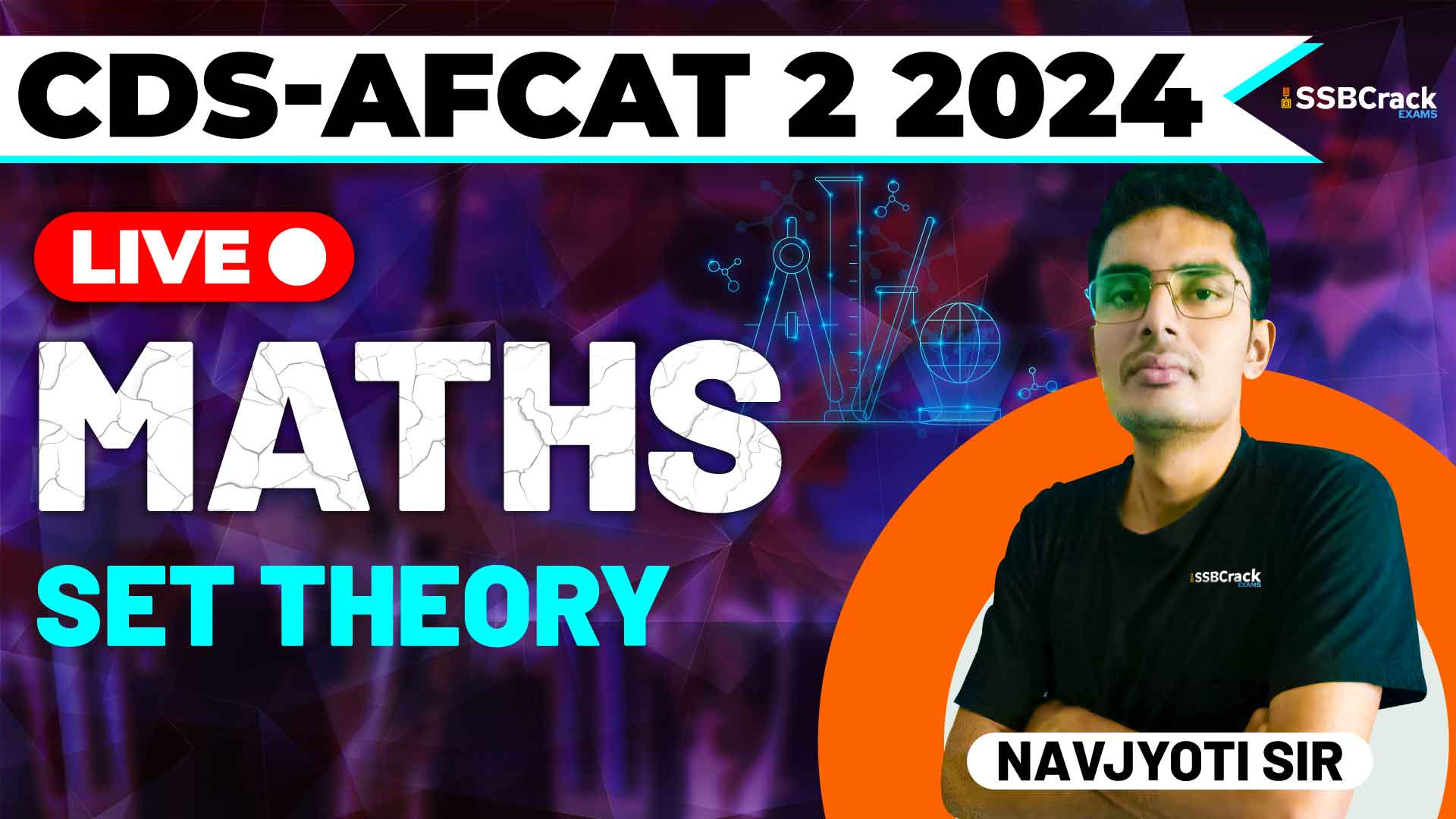Set theory is a fundamental branch of mathematics that forms the basis for various advanced mathematical concepts and applications. For candidates preparing for competitive exams like the Combined Defence Services (CDS) and Air Force Common Admission Test (AFCAT), a solid understanding of set theory is essential. A recent class dedicated to set theory aimed to provide students with a comprehensive understanding of this topic through detailed explanations and extensive practice with multiple-choice questions (MCQs). This article highlights the key concepts covered in the class, their significance, and practical strategies for solving set theory-based MCQs.
Importance of Set Theory in Competitive Exams
Set theory is a crucial component of the mathematics syllabus in many competitive exams, including CDS and AFCAT. Questions on set theory test a candidate’s ability to understand and manipulate sets, which is essential for solving complex problems in various areas of mathematics. Mastery of set theory can significantly enhance a candidate’s problem-solving skills and overall performance in the exam.
Definition of Sets
A set is a well-defined collection of distinct objects, considered as an object in its own right. Sets are usually denoted by capital letters, and the objects within a set are called elements or members. Understanding the basic definition of sets is the first step in mastering set theory.
Representation of Sets
Sets can be represented in two main ways:
- Roster or Tabular Form: Listing all the elements of the set within curly braces. For example, A = {1, 2, 3, 4}.
- Set-builder Form: Describing the properties that characterize the elements of the set. For example, A = {x | x is a positive integer less than 5}.
Types of Sets
Several types of sets are important in set theory:
- Empty Set (Null Set): A set with no elements, denoted by {} or ∅.
- Finite Set: A set with a countable number of elements.
- Infinite Set: A set with an uncountable number of elements.
- Equal Sets: Two sets with exactly the same elements.
- Subset: A set A is a subset of set B if all elements of A are also elements of B, denoted by A ⊆ B.
- Power Set: The set of all subsets of a set A, including A and the empty set.
- Universal Set: The set that contains all objects under consideration, usually denoted by U.
Operations on Sets
The class also covered various operations on sets, which are essential for solving many mathematical problems:
- Union ( ∪ ): The union of two sets A and B is the set of elements that are in A, in B, or in both.
- Intersection ( ∩ ): The intersection of two sets A and B is the set of elements that are in both A and B.
- Difference ( − ): The difference of two sets A and B (A − B) is the set of elements that are in A but not in B.
- Complement ( ‘ ): The complement of a set A (A’) is the set of elements that are in the universal set U but not in A.
Application Through MCQs
The class emphasized the importance of practicing MCQs to apply the set theory concepts discussed. Practicing MCQs helps in:
- Understanding Question Patterns: Familiarity with the types and patterns of questions that appear in exams.
- Improving Speed and Accuracy: Enhancing problem-solving speed and accuracy, which is crucial for time management during exams.
- Reinforcing Concepts: Applying theoretical knowledge to practical problems, reinforcing understanding and retention.
Conclusion
Mastering set theory is essential for success in the CDS and AFCAT exams. The recent class provided students with a comprehensive understanding of fundamental set theory concepts, including the definition, representation, types of sets, and various set operations. Through extensive practice with MCQs, students gained valuable experience in applying these concepts to solve practical problems.
Consistent practice, a clear understanding of fundamental concepts, and strategic problem-solving are the keys to excelling in set theory. With dedicated preparation and a strong grasp of set theory principles, students can approach the CDS and AFCAT exams with confidence and achieve their desired results.







